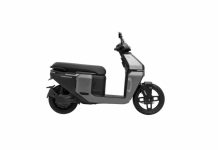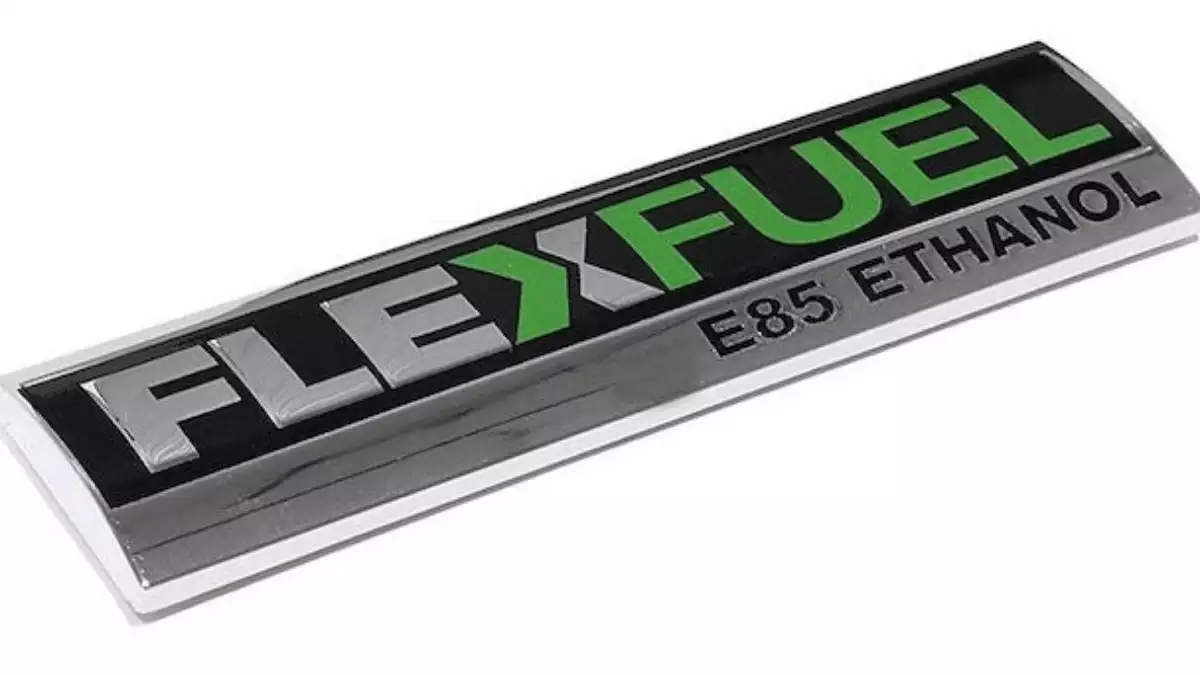The automobile industry has sought a 5% Goods and Services Tax (GST) on two-wheelers running on flex fuel, at par with those powered by electric powertrains. This aligns with the government’s push toward bringing vehicles that help reduce oil imports.
Flex-fuel vehicles can run on a blend of petrol and ethanol, which can help reduce the country’s dependence on imported oil. The government has mandated that ethanol blending in petrol should be increased to 20% by 2025.

Advantages
One of the key advantages is their ability to reduce oil imports. Using ethanol as a fuel source, flex-fuel vehicles can help decrease the country’s dependence on imported oil, which has economic and energy security implications.
Additionally, flex-fuel vehicles can contribute to improving air quality. Ethanol burns cleaner than traditional petrol, reducing carbon monoxide and particulate matter emissions. This can positively impact the environment and public health, particularly in densely populated areas where air pollution is a significant concern.
Another advantage of flex-fuel vehicles is their potential affordability. By offering a lower Goods and Services Tax (GST) rate on these vehicles, the automobile industry argues that they can become more accessible to consumers, leading to increased adoption. Lowering the GST rate would make flex-fuel two-wheelers more competitively priced than traditional petrol-powered vehicles, encouraging consumers to choose greener options.
Association
However, some challenges associated with flex-fuel vehicles need to be addressed. One challenge is the availability of ethanol. While the government has mandated an increase in the blending of ethanol in petrol to 20% by 2025, the consistent availability across all parts of the country may pose a challenge. Ensuring a steady ethanol supply nationwide would be crucial for the widespread adoption of flex fuel vehicles.
Another challenge is the infrastructure for refuelling flex-fuel vehicles. Currently, the refuelling infrastructure for traditional petrol-powered vehicles is more widespread and established than for flex-fuel vehicles. Building a robust network of refuelling stations for flex-fuel vehicles would be essential to support their widespread use and address potential buyers’ concerns about range anxiety.
In summary, flex-fuel vehicles offer the potential to reduce oil imports, improve air quality, and be more affordable than traditional petrol-powered vehicles. The automobile industry’s request for a lower GST rate on flex-fuel two-wheelers aligns with the government’s objectives and will likely be considered favourably.
However, addressing challenges such as consistent ethanol availability and expanding the refuelling infrastructure would be crucial to realizing the full potential of flex-fuel vehicles in India.
Pros of Flex Fuel Vehicles:
- Reduced oil imports: Flex fuel vehicles can help decrease a country’s dependence on imported oil. Using ethanol as a fuel source, these vehicles offer an alternative to traditional petrol-powered vehicles, contributing to energy security and reducing reliance on foreign oil.
- Environmental benefits: Ethanol burns cleaner than petrol, reducing carbon monoxide and particulate matter emissions. Flex-fuel vehicles can help improve air quality and reduce greenhouse gas emissions, positively impacting the environment and public health.
- Potential affordability: With a lower Goods and Services Tax (GST) rate, flex-fuel vehicles can become more affordable than traditional petrol-powered vehicles. This can incentivize consumers to choose greener options and increase the adoption of flex-fuel technology.
- Renewable fuel source: Ethanol is typically derived from sugarcane, corn, or cellulosic materials. Using ethanol as a blend with petrol, flex-fuel vehicles offer a more sustainable and renewable fuel option than vehicles solely dependent on fossil fuels.
Cons of Flex Fuel Vehicles:
- Ethanol availability: Ensuring a consistent ethanol supply throughout the country can be challenging. The production and distribution infrastructure for ethanol may not be as widespread or developed as petrol. This could limit the widespread adoption of flex-fuel vehicles, particularly in regions with limited ethanol availability.
- Refuelling infrastructure: The infrastructure for refuelling flex-fuel vehicles is not as established or widely available as that for traditional petrol-powered vehicles. The limited availability of refuelling stations may cause inconvenience or range anxiety for flex-fuel vehicle owners, especially in areas with sparse refuelling infrastructure.
- Potential fuel efficiency trade-offs: Flex fuel vehicles may experience reduced fuel efficiency compared to vehicles running solely on petrol. Ethanol contains lower energy content per unit volume than petrol, which can result in lower mileage or require larger fuel tanks to compensate for the lower energy density of ethanol blends.
- Vehicle performance: Flex-fuel vehicles may experience differences in performance compared to petrol-powered vehicles. Ethanol blends can affect acceleration, engine power, and cold-start capabilities. However, advancements in engine technology and fuel management systems have significantly improved the performance of flex-fuel vehicles in recent years.
Conclusion
In conclusion, flex-fuel vehicles running on a blend of petrol and ethanol have the potential to bring significant benefits to the automobile industry and the country as a whole. They can contribute to reducing oil imports, improving air quality, and potentially offering more affordable options for consumers.
The government’s push towards vehicles that help reduce oil imports aligns with the request from the automobile industry for a lower Goods and Services Tax (GST) rate on flex-fuel vehicles.
However, some challenges must be addressed for adopting flex-fuel vehicles. The consistent availability of ethanol across all regions of the country and the expansion of refuelling infrastructure are crucial factors that need attention. Overcoming these challenges will be essential to realize the benefits and potential of flex-fuel vehicles fully.
Overall, flex-fuel vehicles offer a promising alternative to traditional petrol-powered vehicles, with the potential for reducing environmental impact and enhancing energy security. As technology advances and infrastructure improves, flex-fuel vehicles may become a more viable and widely adopted option, contributing to a greener and more sustainable transportation sector.

































